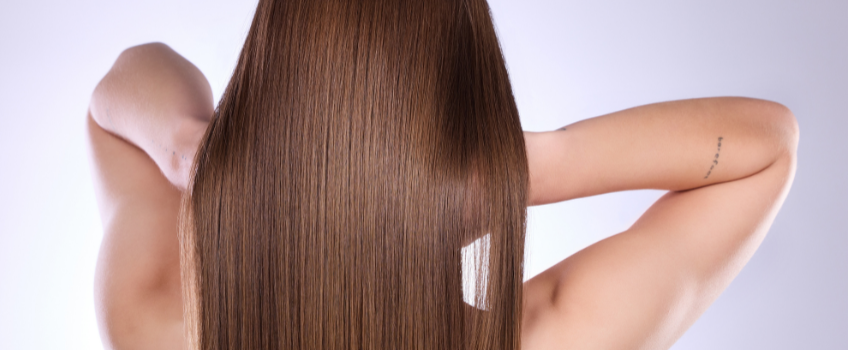Keratinization and PRP Therapy
Our skin, hair, and nails are often considered just external features that contribute to our appearance, but they play an integral role in safeguarding our body from the external environment. At the core of these protective structures is a sophisticated and continual process called keratinization.
This biological marvel ensures our body remains shielded from harm, but how exactly does it happen? And what factors might influence its efficacy? Dive into the intriguing world of keratinization to unravel its importance, intricacies, and its interaction with therapies like PRP hair treatments.
1. First of all, what is keratinization?
Keratinization, which is also known as cornification, is a natural biological process that occurs in the outer layer of the skin (epidermis), hair, nails, and other protective structures in the body. It involves the transformation of living cells into tough, water-resistant, and non-living cells filled with a protein called keratin.
2. Why is keratinization so important?
Keratinization is absolutely essential for providing strength, durability, and protection to various tissues in the body. It also ensures that structures like the skin, hair, and nails can withstand external challenges and keep the body safe from external organisms.
3. What are the two main types of keratin based on their properties and distribution in the body?
The two main types of keratin are known as hard keratin and soft keratin. Hard keratin is found in structures that require more rigidity and toughness, such as the hair and the nails. Soft keratin is found in more flexible and pliable structures, such as the epidermis, mucous membranes, and the lining of certain internal organs like the stomach and intestine.
4. How does the process of keratinization work?
The process of keratinization involves the continual reproduction of cells in the stratum germinativum (the basal layer of the epidermis) and their subsequent movement towards the skin’s surface. As these cells move from the base layers to the uppermost layer, the stratum corneum, they undergo changes and develop into fully matured keratin-filled cells.
5. What physical changes occur during the keratinization process?
During the keratinization process, the keratinocytes (cells undergoing keratinization) undergo a remarkable physical change. They flatten and lose their nuclei and organelles in a process known as enucleation. This change allows the cells to pack together tightly, forming a strong, durable, and cohesive protective layer. The flattened shape also reduces the likelihood of water and other substances from penetrating the skin.
6. What are the critical chemical changes that occur during keratinization?
The most critical chemical change during keratinization is the formation of keratin filaments within the corneocytes (fully developed keratin-filled cells). Keratin is a tough, fibrous, and insoluble protein rich in cysteine, an amino acid with sulfur-containing side chains. The sulfur-sulfur bonds in cysteine create strong disulfide bridges, contributing to the resilience and stability of the keratin structure. The cross-linking of keratin filaments provides mechanical strength to the cornified layer, making it an effective barrier against mechanical stress, water, and other environmental factors.
7.How does keratinization provide constant replacement of nutrients for the microorganisms living on the skin’s surface?
The cells of the outermost layer of the stratum corneum are constantly being shed in the form of particles. This loss is made up for by the continuous replacement of cells from below. As the cells move towards the skin’s surface in successive stages of differentiation, they develop into fully matured keratin-filled cells. This process of keratinization provides a constant supply of nutrients for the microorganisms living on the skin’s surface.
8. Is keratinization a continuous process throughout life?
Yes, keratinization is a constant, continuous process throughout life. The epidermis is a highly organized system in which cells divide, migrate, change shape, develop, and eventually die, ensuring the constant replacement of cells to maintain healthy tissues.
9. How does PRP Hair Therapy Affect keratinization?
1. Growth Factor Delivery: PRP contains numerous growth factors, including platelet-derived growth factor (PDGF), vascular endothelial growth factor (VEGF), transforming growth factor (TGF), and others. These growth factors can stimulate hair follicle cells, including those involved in the keratinization process, to function optimally.
2. Hair Follicle Health: By promoting a healthier environment for hair follicles, PRP might indirectly ensure that the process of keratinization occurs more effectively. If the hair follicles are healthy, the formation and structure of the hair shaft, which undergoes keratinization, might also be optimized.
3. Anagen Phase Extension: One of the potential benefits of PRP is the prolongation of the anagen (growth) phase of the hair cycle. A longer anagen phase means the hair can grow longer, and the keratinization process has more time to proceed effectively.
4. Stem Cell Activation: PRP might stimulate stem cells in the hair follicle bulge area. These stem cells can differentiate into various cells, including keratinocytes. Thus, an increase in the number or activity of these cells could influence the keratinization process.
Conclusion
Keratinization, a marvel of biology, is fundamental to our body’s protection. As we’ve journeyed through its intricacies, it’s evident that this process is much more than just a structural transformation; it’s a well-orchestrated symphony of cellular differentiation, migration, and development. It ensures our skin, hair, and nails remain robust and resilient, providing an ever-present defense against external factors.
Furthermore, as demonstrated by PRP hair therapy, there are modern interventions that can influence and potentially enhance this natural process, leading to improved hair health and potentially other clinical applications. Understanding the depths of keratinization not only provides insights into how our body protects itself but also offers avenues for future medical and cosmetic advancements.
To book your complimentary consultation appointment, call us at 416-548-6548
Book a Consultation
